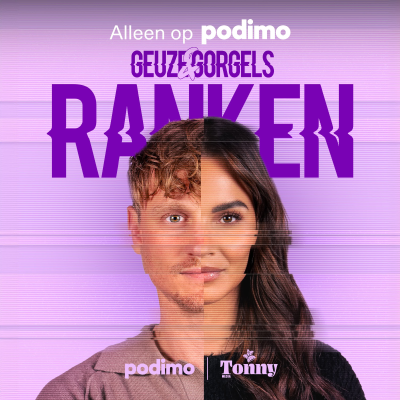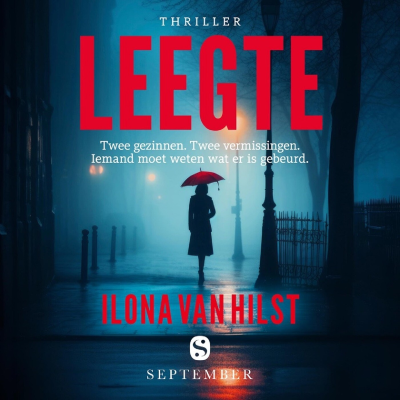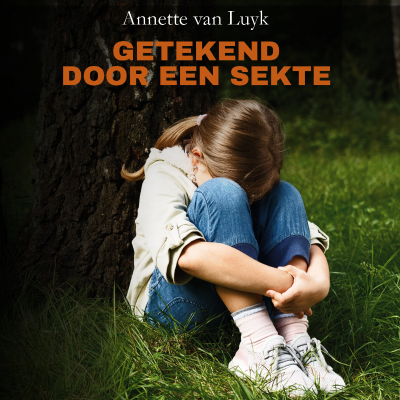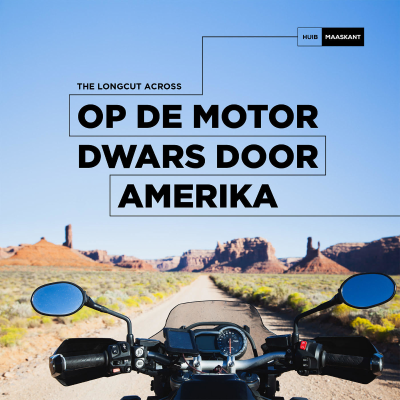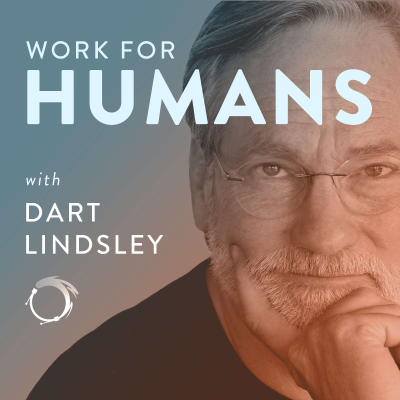
Work For Humans
Engels
Business
Tijdelijke aanbieding
1 maand voor € 1
Daarna € 9,99 / maandElk moment opzegbaar.
- 20 uur luisterboeken / maand
- Podcasts die je alleen op Podimo hoort
- Gratis podcasts
Over Work For Humans
Too often business leaders are forced to choose between the needs of their company and the needs of their employees. It’s a lose/lose scenario leaving managers burned out and workers seeking other opportunities. At Work for Humans, we believe work can be designed differently. When you design work like products people love, your company wins. Work becomes irresistible, employees passionately buy into their roles every day, and your company takes measurable strides towards your vision.
Alle afleveringen
185 afleveringenRethinking Career Design: How Traditional Education Set Up a Generation to Fail, and How to Course Correct Today | Farouk Dey, Revisited
In an ideal world, college would help students explore possibilities and imagine a future that fits who they are. Instead, many choose majors before they know themselves and get pushed onto a career conveyor belt with little space to discover what matters to them. Farouk Dey wants to change that. His work encourages students to pause, experiment, and learn from real experiences before deciding where they want to go. In this episode, Dart and Dr. Farouk Dey discuss how life design can help students find direction through experimentation, and how universities can create fuller, more meaningful journeys for the people they serve. Dr. Farouk Dey is the President of Palo Alto University. He has spent more than two decades reimagining how universities help students prepare for life and work. In this episode, Dart and Farouk discuss: - The Imagine Center for Integrative Learning and Life Design - How economic shifts drive national career changes - The growing need to develop minds, not just careers - Changing the outdated career service models of American universities - Balancing competition and curiosity when choosing a career - The importance of experiential learning for life design - How universities can give students a higher return on their investment - Farouk’s advice for companies who want to build a life design center - How to construct your passion – not find it - And other topics… Dr. Farouk Dey is the President of Palo Alto University and the former Vice Provost for Integrative Learning and Life Design at Johns Hopkins University. He previously held senior roles at Stanford University and Carnegie Mellon University, where he led work in career and experiential education. His focus is helping students navigate learning, work, and meaning through applied design principles. Dr. Dey holds a PhD and EdS in Higher Education Administration, an MBA, an MEd in Counseling Psychology, and a BBA in Finance. Resources mentioned: Bill Burnett on Work For Humans: https://podcasts.apple.com/us/podcast/designing-your-life-how-to-use-design-principles-to/id1612743401?i=1000738307337 [https://podcasts.apple.com/us/podcast/designing-your-life-how-to-use-design-principles-to/id1612743401?i=1000738307337] Connect with Farouk: LinkedIn: https://www.linkedin.com/in/faroukdey/ [https://www.linkedin.com/in/faroukdey/] Work with Dart: Dart is the CEO and co-founder of the work design firm 11fold [https://www.11fold.com/]. Build work that makes employees feel alive, connected to their work, and focused on what’s most important to the business. Book a call at 11fold.com [https://www.11fold.com/].
Workflow Friction: The Missing Link in Work Design and AI Transformation | Stephanie Denino
Friction is part of every workplace. It shows up in the meetings that don’t need to happen, the unclear steps, and the small barriers that make work harder than it has to be. It’s a cost we’ve come to accept, but it doesn’t need to stay that way. When we look more closely, we start to see the real experience of work where people get stuck, where energy drains away, and where better design could help them thrive. In this episode, Dart and Stephanie Denino discuss what friction really means, how language shapes the way we think about work, and why AI is putting new pressure on workflow design. Stephanie Denino is Head of Advisory at FOUNT Global and a Managing Director at TI People. She helps leaders understand friction in workflows and redesign work so people can get things done with less effort. In this episode, Dart and Stephanie discuss: - Why friction is “the tax you pay when work is poorly designed” - How workers describe friction in their day-to-day tasks - Why focusing on workflow changes how leaders see problems - The two types of workflows inside organizations - How language shapes the way leaders talk about work - Why HR is becoming central to workflow design with AI - What friction reveals about customer outcomes and capacity - How process diagrams mask the lived experience of work - How product thinking improves workflow design - And other topics… Stephanie Denino is the Head of Advisory at FOUNT Global and a Managing Director at TI People, where she helps organizations identify and reduce friction in employee workflows using data and design. Before joining TI People, she spent more than a decade at Accenture in experience design and talent transformation roles. Her work centers on improving how people get work done through better systems, clearer processes, and intentional practices. Resources: FOUNT Global: https://www.fount-ex.com/ [https://www.fount-ex.com/]Connect with Stephanie: LinkedIn: https://www.linkedin.com/in/stephaniedenino/ [https://www.linkedin.com/in/stephaniedenino/] Work with Dart: Dart is the CEO and co-founder of the work design firm 11fold [https://www.11fold.com/]. Build work that makes employees feel alive, connected to their work, and focused on what’s most important to the business. Book a call at 11fold.com [https://www.11fold.com/].
Designing Your Life: How to Use Design Principles to Get What You Want in Work and Life | Bill Burnett, Revisited
From kitchen tables to self-driving cars, everything around us was designed to solve a problem. Bill Burnett, award-winning Silicon Valley designer, believes we can use the same approach to design careers that bring fulfillment and joy. By using curiosity, reframing, collaboration, and other tools, Bill shows how to enjoy the present while shaping a better future. In this revisited episode, Dart and Bill discuss how to adopt a design mindset for life and work, tackle the sunk-cost fallacy, rethink work-life balance, and share practical management advice. Bill is an award-winning designer, New York Times bestselling author, adjunct professor, and Executive Director of the Life Design Lab at Stanford University. Throughout his career, Bill has designed everything from the first slate computer to Hasbro Star Wars action figures, assisting and advising Fortune 100 companies and start-ups alike. In this episode, Dart and Bill discuss: - The design mindset you need to build the life you want - The problem with hyper-focusing on one goal - How to reframe problems to discover new solutions - Avoiding the sunk-cost fallacy - Enjoying what you have while building a brighter future - Management advice for interviewing and hiring adaptable employees - An antidote for the work-life balance problem - And other topics… Bill Burnett is an award-winning Silicon Valley designer and New York Times best-selling author. He currently serves as the Adjunct Professor and Executive Director of the Life Design Lab at Stanford University, and over 350 universities now use his curriculum on how to design your life. Throughout his career, he has designed everything from the first slate computer to Hasbro Star Wars action figures in the toy industry, assisting and advising Fortune 100 companies and start-ups alike. Bill is the co-author of the bestselling book Designing Your Life and recently published Designing Your New Work Life, both of which have garnered significant acclaim. His impact on design, education, and professional development continues to shape industries and inspire aspiring designers worldwide. Resources Mentioned: Designing Your New Work Life, by Bill Burnett and Dave Evans: https://www.amazon.com/Designing-Your-Work-Life-Happiness/dp/0593467450 [https://www.amazon.com/Designing-Your-Work-Life-Happiness/dp/0593467450] Designing Your Life, by Bill Burnett and Dave Evans: https://www.amazon.com/Designing-Your-Life-Well-Lived-Joyful/dp/1101875321 [https://www.amazon.com/Designing-Your-Life-Well-Lived-Joyful/dp/1101875321] Connect with Bill: www.DesigningYour.Life [http://www.designingyour.life/] Work with Dart: Dart is the CEO and co-founder of the work design firm 11fold [https://www.11fold.com/]. Build work that makes employees feel alive, connected to their work, and focused on what’s most important to the business. Book a call at 11fold.com [https://www.11fold.com/].
Work-as-a-Product: How Dropbox Redesigned Work for the Virtual Era | Melanie Rosenwasser
Dropbox didn’t just adapt to remote work. It redesigned work itself. After the pandemic, Melanie Rosenwasser and her team joined forces with Dropbox’s designers to study how people actually work and what they need to do their best thinking. Backed by data, they made the leap to their Virtual First operating model in which the vast majority of the workforce is remote and physical spaces are used primarily for planned team events. In this episode, Dart and Melanie explore how Dropbox leadership supported the move to work-as-a-product, how design thinking has fundamentally reshaped the people function, and what it takes to build human-centered systems at scale. Melanie Rosenwasser is the Chief People Officer at Dropbox and a key architect of its Virtual First model. She focuses on designing human-centered, high-impact ways of working. In this episode, Dart and Melanie discuss: - How Dropbox rebuilt its operating model - Why most companies misunderstand remote and hybrid work - The principles behind Virtual First - What happens when HR behaves like a product team - How clarity, norms, and intentionality replace meetings - The experiments that changed how Dropbox collaborates - How leadership transforms in a remote-forward world - Why work must be designed, not assumed - And other topics… Melanie Rosenwasser is the Chief People Officer at Dropbox, where she leads the global HR organization spanning People Operations and Tech, Total Rewards, Talent Acquisition, Learning and Organizational Development, People Analytics, and Employee Experience. She is known for championing innovative talent practices, cultivating continuous learning cultures, and designing workplaces where people can do their best work. Melanie is a lecturer in Columbia University’s Human Capital Management program and a key architect of Dropbox’s Virtual First model. Resources Mentioned: Virtual First: https://experience.dropbox.com/virtualfirst [https://experience.dropbox.com/virtualfirst] Dropbox blog, Work in Progress: https://blog.dropbox.com/ [https://blog.dropbox.com/] Connect with Melanie: LinkedIn: https://www.linkedin.com/in/melanierosenwasser/ [https://www.linkedin.com/in/melanierosenwasser/] Work with Dart: Dart is the CEO and co-founder of the work design firm 11fold [https://www.11fold.com/]. Build work that makes employees feel alive, connected to their work, and focused on what’s most important to the business. Book a call at 11fold.com [https://www.11fold.com/].
Immersive Experience Design: How to Use Story to Design Work Experiences | Stacy Barton, Revisited
Stacy Barton was assigned an exhaustive project at 9 pm and had to complete it by 6 am if she wanted to receive a paycheck. While most of us would have deflated under the pressure, Stacy saw an opportunity; it was time to get creative. By being inventive and working around the rules, she learned how to deliver a product that companies, employees, and her audience love. In this revisited episode, Stacy shares how constraints spark creativity, why the audience is always the star, and how storytelling can transform leadership, teamwork, and workplace culture. Stacy has been creating multimillion-dollar immersive experiences for over 37 years as a designer, award-winning writer, and story lead. She uses her creativity to work with high-network individuals and companies like Disney, Ringling Bros, DreamVision, and SeaWorld, among others. In this episode, Dart and Stacy discuss: - Creating an immersive experience to engage customers - How to show your customers/employees you care about them - Discovering the story behind your brand - Finding employees that complement your company - The importance of appreciation at work - Applying storytelling to real-world business problems - Being creative within the constraints of work - And more… Stacy Barton has been creating immersive experiences as a designer, writer, and story lead for over 37 years. Utilizing immense creativity and problem-solving skills, she helps build multimillion-dollar pop-up experiences, escape rooms, shows, and theme park areas for high-network individuals and companies, including Disney, Ringling Bros, DreamVision, and SeaWorld. As a writer, Stacy brings stories to life through her scripts, narrative development, and novels. She is the award-winning author of three books, five children’s picture books, and over 30 magazine publications. She presented as a panelist for the National Association of Writers and Writing Program and is a speaker for events such as the F. Scott Fitzgerald Literary Conference and the Disney Institute. Resources Mentioned: Why We Work, by Barry Schwartz: https://www.amazon.com/Why-We-Work-Barry-Schwartz/dp/144237814X [https://www.amazon.com/Why-We-Work-Barry-Schwartz/dp/144237814X] Connect with Stacy: Website: https://www.stacybarton.com/ [https://www.stacybarton.com/] LinkedIn: https://www.linkedin.com/in/stacy-barton-58b7997/ [https://www.linkedin.com/in/stacy-barton-58b7997/] Amazon: https://www.amazon.com/stores/Stacy-Barton/author/B001JS4R6A [https://www.amazon.com/stores/Stacy-Barton/author/B001JS4R6A] Work with Dart: Dart is the CEO and co-founder of the work design firm 11fold [https://www.11fold.com/]. Build work that makes employees feel alive, connected to their work, and focused on what’s most important to the business. Book a call at 11fold.com [https://www.11fold.com/].
Kies je abonnement
Tijdelijke aanbieding
Premium
20 uur aan luisterboeken
Podcasts die je alleen op Podimo hoort
Gratis podcasts
Elk moment opzegbaar
1 maand voor € 1
Daarna € 9,99 / maand
Premium Plus
Onbeperkt luisterboeken
Podcasts die je alleen op Podimo hoort
Gratis podcasts
Elk moment opzegbaar
Probeer 30 dagen gratis
Daarna € 11,99 / month
1 maand voor € 1. Daarna € 9,99 / maand. Elk moment opzegbaar.

